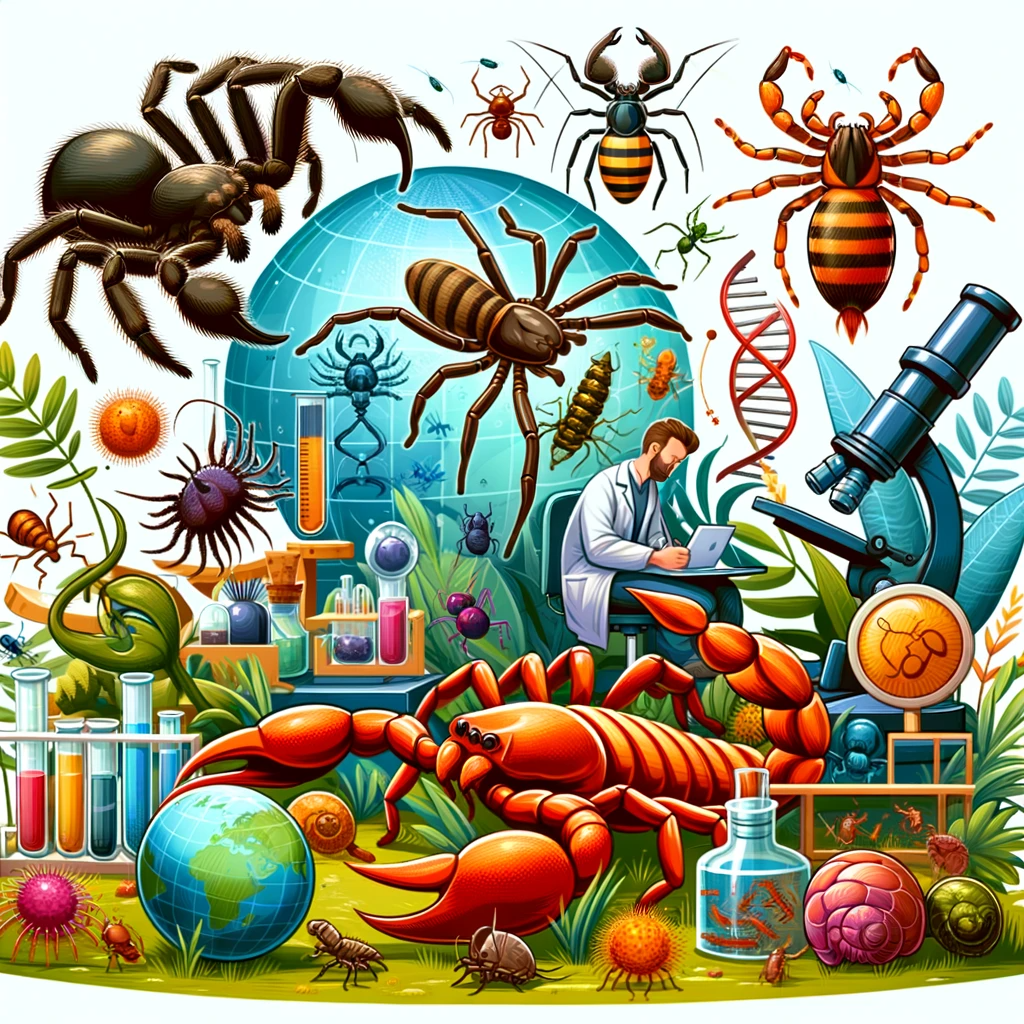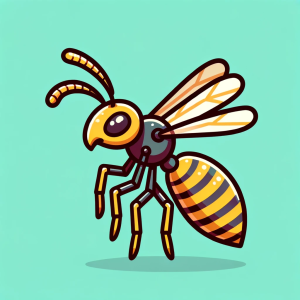
Unraveling the World of Arachnids: A Journey Through Their Science and Significance
Arachnids, those often misunderstood creatures that crawl in many a nightmare, are in fact a vital part of our world’s ecosystem. They are as diverse as they are numerous, with an estimated species count possibly in the millions, yet much about them remains a mystery. This blog delves into the seven grand challenges laid out in The Seven Grand Challenges in Arachnid Science, discussing what they mean for arachnids and, by extension, for us.
1. Discovering the True Diversity of Arachnids
One of the most pressing challenges is understanding just how many types of arachnids there are. Currently, scientists have named and described a fraction of what exists, making it a race against habitat destruction to identify new species. This endeavor isn’t just academic; discovering new species can lead to breakthroughs in medicine, agriculture, and understanding our planet’s health.
2. Streamlining the Study of Arachnids
Standardizing research methods is vital for scientists worldwide to compare and build upon each other’s work effectively. This challenge seeks to establish clear guidelines and techniques for studying arachnids, ensuring that future discoveries are based on a solid foundation of consistent, quality data.
3. Decoding Arachnid Traits
Understanding the genetic blueprint of arachnids is crucial. This knowledge can lead to advancements in biotechnology, medicine, and agriculture. By studying arachnid genes, we can learn how their venom or silk could be used in new, innovative ways, from creating new materials to medical treatments.
4. Harnessing Arachnid Biomaterials
The potential applications of arachnid silk and venom are vast, from new therapies to sustainable materials. Scientists are eager to develop ways to harness these resources for human benefit, striving for breakthroughs that could revolutionize various industries.
5. Arachnids as Environmental Indicators
Arachnids are excellent indicators of environmental health. By understanding their role in ecosystems, scientists can use them to monitor biodiversity and environmental changes. This challenge emphasizes the importance of arachnids in maintaining healthy ecosystems and the need to include them in conservation efforts.
6. Understanding the Evolution of Arachnids
Exploring how arachnids evolved and diversified is key to understanding their role in nature and how they might continue to adapt. This knowledge is fundamental to protecting them and the environments they inhabit, especially as the planet changes.
7. Protecting Arachnids Amidst Global Changes
As our planet undergoes significant shifts due to climate change and habitat destruction, identifying effective conservation strategies for arachnids is more important than ever. This challenge focuses on creating actionable plans to ensure the survival of these crucial creatures.
Conclusion
The world of arachnids is intricate and vast, with each discovery opening new doors to scientific advancement and understanding of our world. By addressing these seven challenges, scientists hope to protect these remarkable creatures and harness their potential to benefit humanity. As we learn more, we find more reasons to appreciate these often misunderstood creatures and their place in our world.
For the Everyday Person
So, why should you care about arachnids? These creatures are part of the delicate balance of our ecosystems. They control pests and pollinate plants, and their venom and silk have the potential to inspire new medicines and materials. By understanding and protecting them, we are looking after our planet’s health and future.
Unlock the Secrets of Science:
“Get ready to unlock the secrets of science with ‘This Week in Science’! Our newsletter, designed specifically for educators and science aficionados, delivers a weekly digest of revolutionary research, innovative discoveries, and motivational tales from the scientific frontier. Subscribing is your key to a treasure trove of insights that can revolutionize your approach to teaching and learning science. Sign up today at no cost and start a journey that deepens your understanding and passion for science.”



